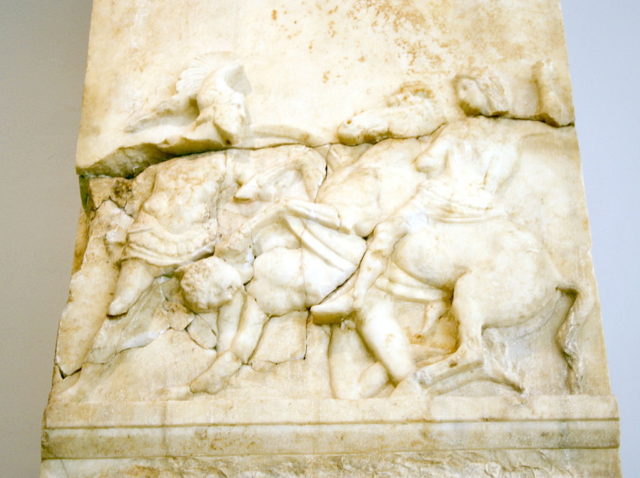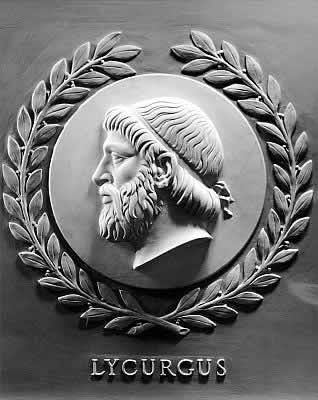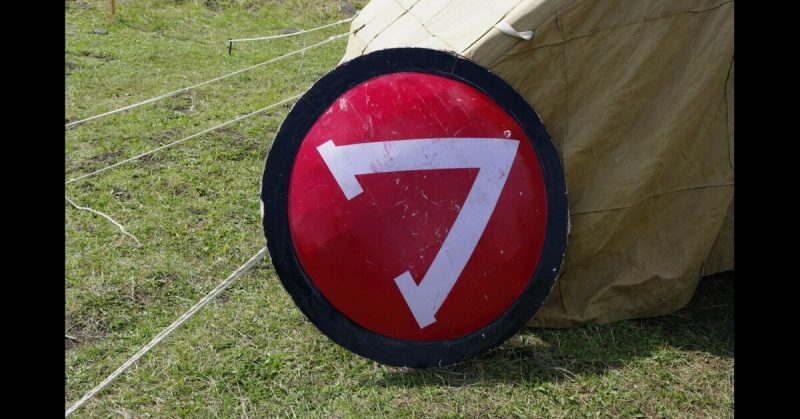“Spartans, Eat Well, for Tonight We Dine in Hades” is a memorable line from the movie, 300. The movie should get credit for fitting in as many laconic phrases that were as historically accurate as possible for Hollywood.
The Spartans pioneered the laconic phrase. Lakonia was the general region around Sparta in southern Greece. They were a tough people, wasting little time with flowery phrases and got to the point quickly.
If they had a chance to inject a little humor with their remarks they did, but they particularly excelled at delivering stinging words to some of the most powerful leaders of the ancient world.
Others have followed the Spartans example. American General McAuliffe, when surrounded by the Germans at the Battle of Bastogne was offered to surrender as he was hugely outnumbered. His response, “Nuts!” – which was roughly translated for the Germans as “go to Hell.”
Here are some of the most epic Spartan quotes that have lived on for millennia.
“IF”
A perfect representation of Spartan character. As Philip II of Macedon was conquering Greek city-states left and right, Sparta was left alone. Philip had achieved a crushing victory, and Sparta was relatively weak and without walls. Philip sent a message to the Spartans saying “If I invade Lakonia you will be destroyed, never to rise again.” The Spartans replied with one word, “If.”
Philip eventually decided to bypass Sparta as it was a poor region and not worth the fight. Neither Philip nor Alexander attacked the Spartans while they ruled.

“We are the only ones who give birth to men”
This is a great quote showing the respect and status of Spartan women. The Spartans roughly equated childbirth as similar to going to battle. They often waited until a woman was well into her teens to have children to ensure a healthy pregnancy.
Women participated in athletics and were ready to handle the numerous slave uprisings if the men were away at war. When asked by an Athenian why Spartan women were the only ones who could rule men, the great Queen Gorgo replied, “We are the only ones who give birth to men.” Boldly stating that only Spartans could claim to be real men.
“With it or on it”
Most people are more familiar with the longer “Come back with this shield or on it,” but in everyday use, it was shortened to just five words as a woman handed his shield to a departing soldier.
In battle, if soldiers had a disorderly or cowardly retreat, they dropped the heaviest piece of equipment they had, their shield. No Spartan woman would welcome home a coward. In place of cowardice, a soldier struck down doing his duty would be carried home with his shield serving as a stretcher.
A Spartan could only come back holding his shield in victory or die in the attempt.
“Neither”
Going back to Philip II, this may be a fictitious story but it fits in perfectly with Spartan wit. After the “If”, Philip bided his time and sent a diplomat to ask the Spartans if Philip should come to their city as a friend or a foe, essentially giving the ultimatum of friendly submission or conquest. The Spartans reply was a bit longer this time; simply “Neither”. As bold and insulting as they were, Philip still steered clear of Sparta.
“Molon Labe”
A Greek phrase many history buffs are familiar with, in English, “Come and get them.” At the famous battle of Thermopylae, the scene was dramatically set. Xerxes had about 100,000 men at his disposal compared to 7,000 Greeks led by 300 Spartans. Xerxes attempted to be rational and requested the Greeks to lay down their arms, and he would spare them all. Leonidas replied, “Come and get them.”
“Then we shall fight in the shade”
Translation and sources muddle this quote up a bit, but it is still worth mentioning. On the eve of battling the 300, Dieneces, a Spartan learned from an informer that the Persian arrows were so numerous they would hide the sun.
Dieneces listened to the foreboding news and replied to his informer “You bring us good news! For now, we can fight in the shade.” There are various translations of this but it is a great example of the Spartans staring death in the face and laughing.
“So that we may always have something to offer”
Lycurgus does not get a lot of credit, but many of Sparta’s greatest achievements would not have been possible if it was not for him. He set up the system of law and military discipline that Sparta came to embody. Although it is quite possible he was a legend, nevertheless, there are several classic phrases attributed to him.

When he was asked why Sparta began a trend of sacrificing less to the gods, his reply was “So that we may always have something to offer.” Minimalism spread throughout the Spartan culture. The city never accrued significant amounts of wealth, and almost entirely focused on their military and maintaining control over their slave helot population.
This minimalism cropped up again when Lycurgus was asked how he would keep Sparta from being attacked. His answer was to “remain poor.” By not having a significant appeal, Sparta was one of the most unappetizing places to conquer as shown by Philip and Alexander’s reluctance to march against the city even as it’s citizens openly defied them.
